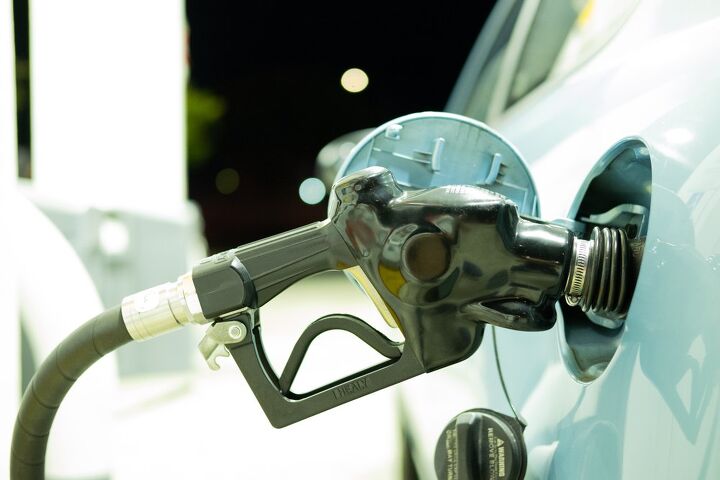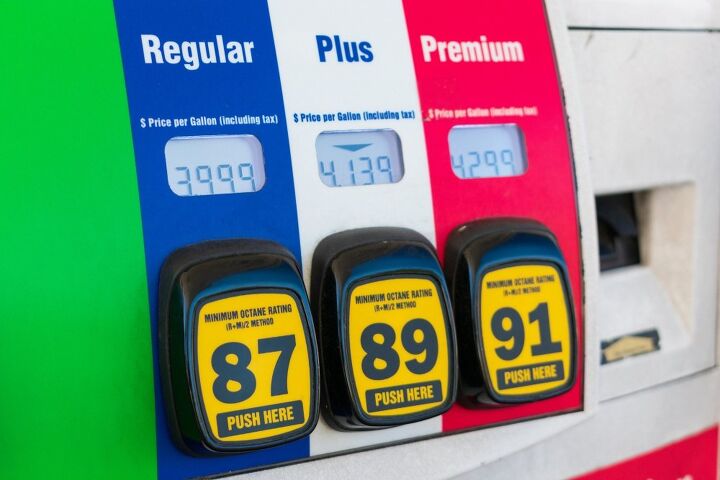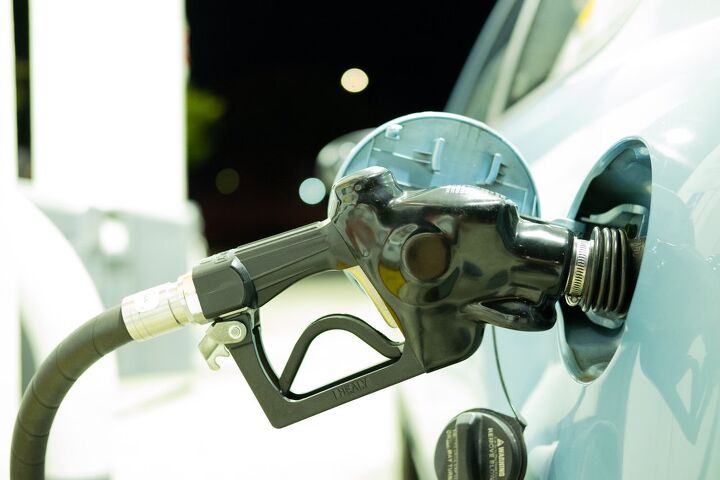#FuelRollback
Battle Lines Are Being Drawn in America's Gas War
Ford Motor Co, Honda Motor Co, BMW Group and Volkswagen AG announced a voluntary deal with California in July — drawing a line in the sand for who they’ll be supporting in the fueling fracas taking place between the Golden State and White House. Meanwhile, the Trump administration’s rollback proposal — which intends on freezing automotive emission standards at 2020 levels through 2026 — saw no such support. But the cavalry seems to have finally arrived after sitting on the sidelines during the battle’s opening maneuvers.
General Motors, Fiat Chrysler Automobiles, Toyota, Mazda, Nissan, Kia, and Subaru all sided against California in a filing with a U.S. appeals court from Monday night. While they’re not setting any economy targets, they are collectively firm on the issue of the state’s ability to self regulate. A large portion of the industry wants a single national standard, not individual states setting their own benchmarks while they attempt to catch up with product.
California Governor Demands Investigation Into High Gas Prices
On Tuesday, California Governor Gavin Newsom responded to a new report claiming oil companies have been overcharging customers over social media.
“[California] drivers have paid an average of 30 cents more per gallon. There’s no identifiable evidence to justify that,” Newsom said. “I’m demanding an investigation. If oil companies are engaging in false advertising or price fixing — legal action should be taken.”
With California leading the charge against the federal government’s proposed fuel economy rollback, Newsom’s words are a bit of a faux pas. While we agree that companies should not be engaging in price fixing, California’s high fuel prices are largely its own doing. Newsom’s claims completely ignore this rather obvious fact — calling his ability to effectively negotiate the national fueling fracas into question.
EPA Chief Hints Vehicle Emission Rules Could Tighten Under Trump - With a Twist
It’s certainly taking this fuel economy rollback proposal we’ve heard so much about a long time to evolve into its final form. Unfortunately, Environmental Protection Agency Administrator Andrew Wheeler has indicated more changes could be needed before a final draft can be released. However, in a bit of a twist, he’s now claiming the proposal will actually be more rigorous than preexisting mandates. Kind of.
“In some of the out years, we’re actually more restrictive on CO2 emissions than the Obama proposal was,” Wheeler told a crowd at the Detroit Economic Club this week.
Gas War: Trump Confirms U.S. Will Revoke California Fuel Waiver
While a considerable portion of Donald Trump’s Twitter announcements aren’t worth paying much attention to, he does occasionally slip some actual information in there. This week, the nugget was the confirmation that his administration intends to revoke California’s federal waiver on emissions — stripping the state of its ability to self-regulate and readying America for the gas war’s main event.
The Environmental Protection Agency was already known to be making preparations to do exactly this, but the president’s Wednesday posting made things crystal clear. “The Trump Administration is revoking California’s Federal Waiver on emissions in order to produce far less expensive cars for the consumer, while at the same time making the cars substantially SAFER,” he wrote.
Gas War: White House Preparing to Strip California of Regulatory Privileges, Report Claims
It’s not as if we anticipated any other outcome, but the White House is moving forward with a plan to revoke California’s authority to set its own vehicle emission standards. According to Reuters, President Donald Trump met with senior officials in Washington on Thursday to discuss the administration’s proposal to roll back Obama-era standards through 2025 and potentially revoke California’s waiver under the Clean Air Act to set state requirements for vehicles.
Anonymous sources claimed Environmental Protection Agency Administrator Andrew Wheeler, Transportation Secretary Elaine Chao, National Economic Council director Larry Kudlow, Deputy Attorney General Jeffrey Rosen and acting Office and Management and Budget director Russell Vought were in attendance.
Gas War: Antitrust Probe Opened Into Automakers Endorsing California Emissions Pact
The Justice Department has opened an antitrust probe into four automakers that formed a pact with California to compromise on tailpipe emissions, effectively circumventing federal regulators, last July.
Over the summer, Ford Motor Co., Honda Motor Co., BMW AG and Volkswagen Group announced a joint agreement with the California Air Resources Board to adhere to fueling standards slightly lower than Obama-era rules but still significantly higher than the Trump administration’s proposal from 2018. The Justice Department is seeking to determine whether or not that qualifies as a violation of federal competition laws.
Gas War Update, Choose a Side Edition
According to recent reports, there’s trouble with the White House’s fuel economy rollback. The Trump administration is said to have been meeting with automakers, asking them to stand behind its proposal to freeze economy standards at about 37 mpg until 2026. The New York Times indicates it was an act of desperation, spurred by claims that Mercedes-Benz was on the cusp of supporting the California compromise. Based on existing standards, which would raise the average fuel economy of new cars and trucks to 54.5 miles per gallon by 2025, the deal would delay its targets by one year.
Honda, Ford, Volkswagen, and BMW previously agreed to support California’s proposal in July. However, the deal is non-binding if the White House decides to push through a rollback, and most of the rhetoric being used by the industry seems more focused on a joint standard.
“A 50-state solution has always been our preferred path forward and we understand that any deal involves compromise,” read the automakers’ joint statement.”These terms will provide our companies much-needed regulatory certainty by allowing us to meet both federal and state requirements with a single national fleet, avoiding a patchwork of regulations while continuing to ensure meaningful greenhouse gas emissions reductions.”
Gas War: Efficiency Rollback Would Raise Fuel Costs, Study Claims
The fuel economy rollback posited by the Trump administration remains a hotly debated issue within the automotive community. Unfortunately, it has become mired in political nonsense, making decrypting the real-world impact of embracing or shunning it rather difficult. Consumer Reports recently took a stab at making sense of the matter, coming out in favor of balking at the notion of a rollback on the grounds that it would ultimately raise fueling costs.
Last year, the administration proposed capping fuel economy and emission standards at 2020 levels, instead of allowing them to rise annually as under existing regulations. The opposition, fronted by California, is vying to maintain the existing standards — with the possible compromise of delaying them by one year.
Four Automakers Make a Deal With California Regarding Vehicle Emissions
While we’ve dinged the media for erroneously reporting that automakers were unilaterally “backing” California in the fuel-economy fracas that’s currently taking place within American politics, it appears four of them actually are starting to choose a side. However, this again requires a bunch of clarification. Despite not adhering fully to the state’s ideal emissions scenario, Ford Motor Co., BMW Group, Volkswagen Group, and Honda Motor Co. released a joint announcement stating they have reached a voluntary agreement with the state of California to adopt compromised vehicle emissions rules.
Since there’s nothing binding in the joint agreement and automakers make (and break) promises all the time, the deal is largely meaningless. Doubly so, since the fuel-economy rollbacks have yet to be finalized. But this does illustrate how a handful of manufacturers are willing to accommodate others in order to get a nationwide solution. It also shows a softening of California’s previously ironclad environmental stance, which is much more interesting.





















Recent Comments